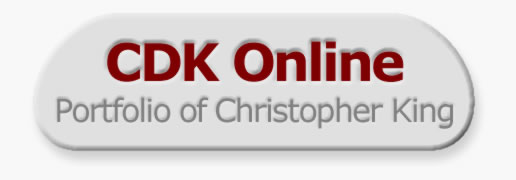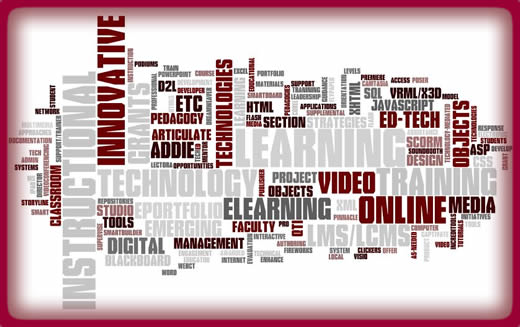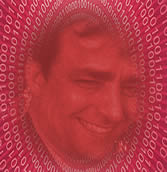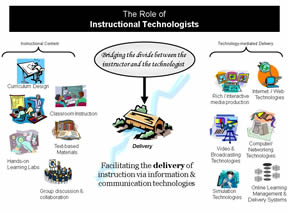
 About Chris
About Chris
Though I began my professional career working in film and video production for the entertainment industry, a chance video project for an academic client gave me  an opportunity to discover the many rewards of working in education. This in turn, inspired a career shift into academia from which I’ve never looked back.
an opportunity to discover the many rewards of working in education. This in turn, inspired a career shift into academia from which I’ve never looked back.
Since that time, I’ve managed to rack up over twenty years of experience working in various positions related to instructional technology including e-learning / online learning support consultant, instructional multimedia developer, LMS/LCMS local administrator, instructional designer, audiovisual technology supervisor, faculty tech-skill trainer, Web designer, educational media/video producer and adaptive/assistive technology specialist (for students with disabilities).
In addition, I've intermittently done sideline work of various kinds including teaching as an adjunct for community/state colleges courses in "Microsoft Computer Applications" and "College Success", handling graphic design and web site building for small businesses, working as an academic strategy tutor for student athletes including an Olympic silver medallist in track and field, and even working on an Internet technology company start-up.
My Philosophy of Instructional Technology
At the most fundamental level, instructional technologists are intermediaries, bridging the intellectual and attitudinal gaps that exist between academics and technicians, and facilitating educator’s use of those various technologies which they need to accomplish their jobs.
While instructors are often experts in their respective fields of study, they do not necessarily possess all the knowledge and skills needed handle and manage the myriad (and often changing) technological tools which they are expected to use, particularly if they teach online courses. So it falls to instructional technologists to offer them as-needed guidance, training and technical support.
Moreover, an instructional technologist can also mediate the often disparate (and sometimes clashing) issues and concerns of academic administrators and information technology service providers. "Academia" and "information technology" are realms which each have their own specialized lingo, and which are typically populated by people having very different mind sets. But within an educational institution, these two populations must work side-by-side to achieve institutional goals. Here, the instructional technologist can provide benefit by playing the role of translator / mediator, helping representatives from each side to understand the issues, needs and concerns of the other.
And finally, aside from these intermediary functions, another key role which instructional technologists play is to continually explore new ways in which technology can enhance the educational process. As new and sometimes transformative technologies regularly emerge, it is incumbent upon instructional technologists to use both their technical aptitudes along with knowledge of pedagogical principles to innovate new and improved solutions to educational challenges.
